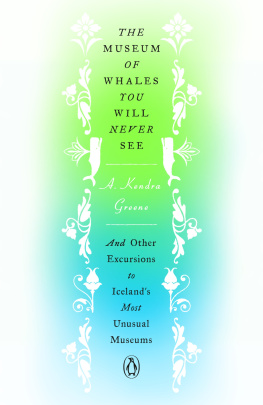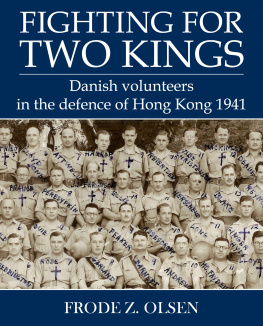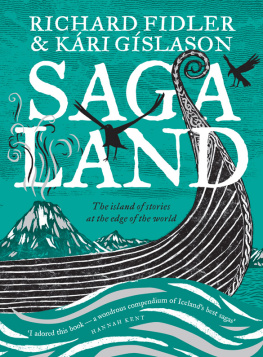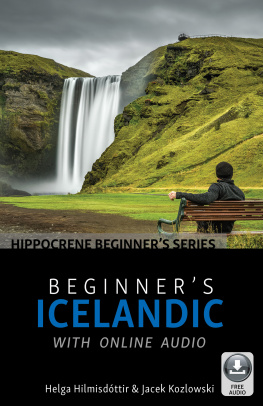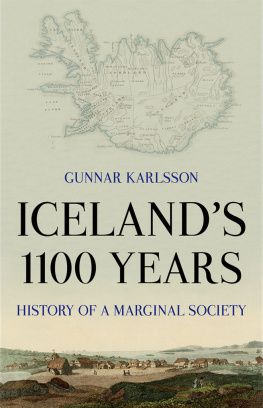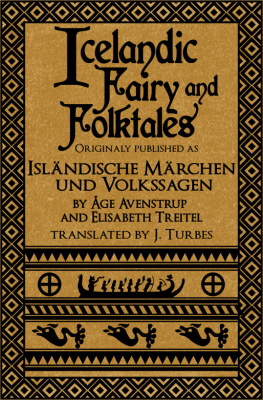
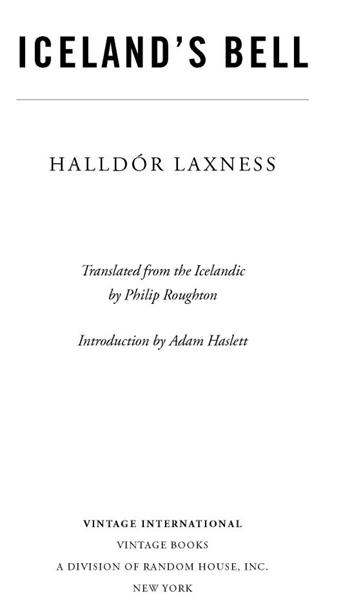
Table of Contents
PRONUNCIATION GUIDE
The modern Icelandic alphabet has thirty-two letters, compared with twenty-six in modern English. There are two extra consonants ( and ), and an additional diphthong (). Readers may find a note on the pronounciations of specifically Icelandic letters helpful:
(), known as eth or crossed d, is pronounced like the (voiced) th in breathe.
(), known as thorn, is pronounced like the (unvoiced) th in breaths.
is pronounced like the i in life.
The pronunciation of the vowels is conditioned by the accents:
like the ow in owl
like the ye in yet
like the ee in seen
like the o in note
like the eu in French fleur
like the oo in soon
like the ee in seen
au like the i in French il
ei and ey like the ay in tray
Please note that asterisks (*) within the text indicate explanatory notes tobe found on pages 407-425.
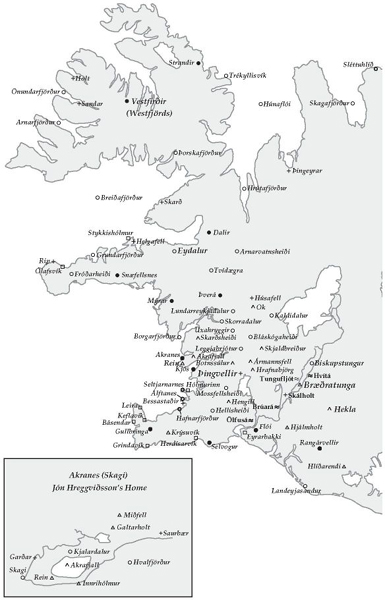
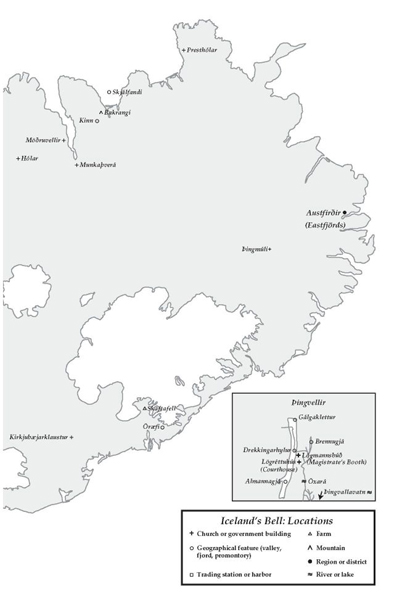
INTRODUCTION
At first glance, Icelands Bell has a few strikes against it when it comes to attracting American readers. To begin with, there is the authors name. Who is Halldr Laxness anyway? And then there is that country in the title. Am I really going to settle into a long novel about Iceland of all places? And did we mention the story takes place in the seventeenth century and revolves around forty years of intractable civil and criminal litigation? Headed for the exits yet? If so, I have some simple advice: stop. Youve stumbled upon a beautiful and hilarious novel by a superb writer. This first English translation of Icelands Bell confirms the authors place among the best novelists of the twentieth century. If I could get away with a one-line introduction, I would: Halldr Laxness rules.
Readers who have encountered this one and only Icelandic Nobel laureate are most likely to have read his 1934 classic, Independent People. Out of print for some time, it is now enjoying a revival and a widening readership thanks to a handful of devoted writers and editors who have championed his work in the last several years. I myself am the beneficiary of these efforts. A friend recommended Independent People to me a few years ago. I bought it with some trepidation, my gut telling me this would be one of those worthy, difficult books that ennoble through struggle. I couldnt have been more wrong. Reading my first Laxness novel is one of those experiences that I look back on with a kind of jealous fondness, loving the memory of it but wishing it hadnt ended.
Many of the same pleasures, in particular a mixture of laughter and awe unique to Laxness, can be found in Icelands Bell. Written a decade after Independent People, the novel has a broader geographical and political scope than that book and is more expressly concerned with national identity and the role literature plays in forming it. It is also a tale of colonial exploitation and the obdurate will of a suffering people. This description might lead one to imagine an earnest and patriotic work, which Icelands Bell most certainly isnt. Thats because Laxness has done here what so many other writers who reach for large, historical themes fail to do: hes retained his sense of the absurd.
There was a time, it says in books, the novel opens, that the Icelandic people had only one national treasure: a bell.
This bell rang at the courthouse on the site of the national assembly where all the major business of government and the courts took place. As the story begins, one of the three central characters, Jn Hreggvisson, a miserably poor farmer, has been arrested for stealing cord, or fishing line, a commodity that every poor person in Iceland seems to be after. Pressed into labor for the Danish crown, which then ruled Iceland, Jn Hreggvisson is made to cut the bell down from where it has hung since time immemorial in order that it be melted down and its copper used in the rebuilding of Copenhagen. The Danish capital has been ravaged by the Swedes and now Iceland is being stripped of its meager wealth to finance the repairs. This insult to the pride of Iceland and the dignity of its courts heralds a descent into the misprision of justice that the characters will contend with for the rest of the book.
Within a few days time, Hreggvisson will be whipped for insulting the king as he cut down the bell (and a more harrowing description of that punishment I have never read). After this harsh treatment Jn gets drunk with a group of his tormentors, including the man who flayed his back. In his typically laconic style, Laxness doesnt suggest anything perverse in this; they just happen to be traveling in the same direction. Lost in a swamp, Jn passes out drunk and wakes to find the dead body of the kings hangman nearby. The judicial haggling over whether Hreggvisson is responsibile for this death will, before the novel is over, ruin the reputations of several Icelandic aristocrats and send the man himself into an endless series of prisons and workhouses. It will also make him a pawn in a love affair between a royal advisor and the most beautiful woman in Iceland.
Readers of Independent People will recognize in Jn Hreggvisson a character cut from the same cloth as Bjartur of Summerhouses, that ignorant and violent bore whom the novels readers cant help but love. Hreggvisson is perhaps even more violent and boorish than Bjartur. Upon returning from the workhouse in the second chapter, he finds his sister and aunt, who were both lepers, one glabrous and palsied, the other nodous and ulcerous, [sitting] downcast in their black veils out by the dungheap, holding each others hands and praising God. Being drunk, he began immediately to beat his wife and his idiot son. His fourteen-year-old daughter laughed at him and his aged mother embraced him tearfully: these he did not beat to any considerable extent.
The bleakness is so total, and perhaps more importantly is delivered in prose so thoroughly nonchalant, that laughter is the only possible relief. Theres no doubt Laxness intends it to be this way. Two hundred pages later, when Hreggvisson returns to find his daughter on her bier, his retarded son laughing, and his wife cursing him, the author asks, But what were these compared to the tragedies that had befallen the mans livestock in his absence? And hes only half kidding. This is gallows humor to be sure, humor quite literally at the edges of death, which is what gives almost all of Hreggvissons scenes their beguiling combination of lightness and profundity.
If Jn Hreggvisson were its one and only hero, Icelands Bell might have ended up as a thinner version of Independent People, but Laxness sets the peasant farmer on a course that intersects with the daughter of Icelands magistrate, the beautiful Snfrur, and the man she comes to love and struggle against, the royal advisor Arnas Arnus. The latter, based on rni Magnsson, the great Icelandic book collector and scholar, has come to Iceland in search of ancient books and manuscripts that might contain fragments of the Icelandic sagas. The soul of Iceland lives in its poetry and its tales of brave men, but in this country, the population has been reduced to using old vellum manuscripts as shoe leather, patches for clothing, and even for food.
Next page

